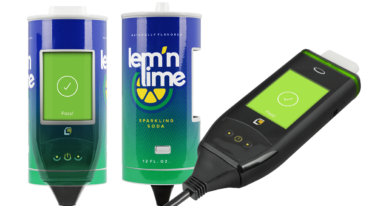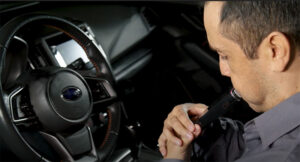
It takes one small decision to change your entire life. Whether you’ve been out with friends or enjoying post-work happy hour, choosing to drink and drive can come with some serious consequences. Every single day, about 29 people die in car crashes involving an alcohol-impaired driver. That equates to about one (very preventable) death every 50 minutes.
States have developed a variety of tools to help prevent the deaths, injuries, and damages caused by drunk driving and punishing those who do drive under the influence. Laws have played a large role in discouraging driving under the influence, as have tools like the ignition interlock device, which is being used more widely, even for first offense DUIs. DUI checkpoints have also become one of the most important tools in the fight against drunk driving. While they may seem intimidating or confusing at first, they are actually much more straightforward than you think. Read on to learn more about DUI checkpoints.
What is a DUI Checkpoint?
A DUI checkpoint, or sobriety checkpoint, is a roadblock set up on a part of a public roadway by police officers for the purposes of assessing passing drivers for signs of impairment or intoxication. While officers usually check for alcohol, they can also check for other drugs and controlled substances if they feel that it is necessary. Some checkpoints may even have drug-sniffing dogs. Most jurisdictions use checkpoints as one part of a more extensive program to deter drunk driving.
The frequency and location of DUI checkpoints depend on the jurisdiction, but most checkpoints are set up during the late nights and early mornings of weekends and holidays (which is when most drunk driving incidents occur) near bars, clubs, and other businesses that serve alcohol.
Laws and DUI Checkpoints
As effective as sobriety checkpoints are, not all states actually conduct them based on certain legal issues surrounding their use. While some states have laws authorizing the use of checkpoints, others outright prohibit sobriety checkpoints. Still, others remain silent on the issue. States that do not have a law or authority explicitly stating the legality or illegality of checkpoints may or may not conduct them.
Currently, 37 states, the District of Columbia, the Northern Mariana Islands, and the Virgin Islands. Thirteen states do not conduct sobriety checkpoints. In some of these states, checkpoints are directly prohibited based on state or Constitutional law (or interpretations of state law or the Constitution). For example, Texas explicitly prohibits DUI checkpoints based on how it interprets the Constitution. In Missouri, checkpoints are allowed and legalized by both state and federal Constitution, but state laws also prohibit spending funds on checkpoint programs.
Sobriety Checkpoint Processes
So, what happens at a DUI checkpoint? It should be noted that many checkpoints stop cars at intervals, meaning they may only stop every fourth or tenth car, for example, so you may not even be stopped. They may also stop you if they have enough reason to believe you may be driving drunk.
Regardless, if you are stopped, the officer will first ask you to roll down your window and turn off your car’s engine. As with any traffic stop, the officer will ask you for your driver’s license, registration, and proof of car insurance. They will use this information to run a background check and determine if you have any warrants. The officer will also ask you where you are driving from and your destination. Aside from getting pertinent information, this initial conversation and interaction is designed to help the officer determine if you are drunk and the level of impairment. General signs of intoxication are easy to spot and may include:
- The smell of alcohol
- Slurring your speech
- Flushed face
- Red eyes
- A general lack of coordination
If you show any signs of impairment or if the officer otherwise suspects that you may be intoxicated, they will ask you to step out of your vehicle and proceed to conduct a series of field sobriety tests.
Can You Refuse Any Part of a DUI Checkpoint?
You may be wondering, “Can you refuse a DUI checkpoint?” Generally, you cannot refuse to stop at a DUI checkpoint as that would mean driving through the checkpoint. Aside from potentially hurting someone, driving through a checkpoint can lead to some serious consequences. It’s also not a good idea to turn around if you see a checkpoint up ahead. Police officers may notice and pursue you.
By law, you can refuse to a search of your vehicle, even by drug-sniffing dogs, unless the officers have probable cause. You can also refuse to answer any questions that the officer asks as you have the right to avoid incriminating yourself. However, officers do have the right to question you to determine if you are intoxicated.
Generally, you are also not required to take any field sobriety tests, no matter how often an officer may ask you. However, this will not stop an officer from arresting you if they have probable cause to believe that you are driving under the influence of drugs or alcohol.
You are also completely within your DUI checkpoint rights to refuse a chemical breath test. However, most states have implied consent laws, which state that by owning a license, you automatically consent to chemical breath tests administered by an officer who suspects you may be driving under the influence of alcohol. By refusing the test, you are breaking the implied consent laws and may be subject to some severe penalties. Refusing a breath test in some states can result in an immediate license suspension. In some states, refusing the breath test can be used as evidence against you, and you may still be charged with a DUI based on other evidence. It is always recommended that you consent to the breath test.
DUI checkpoints may be intimidating, but as long as you’re calm and haven’t actually been drinking, it’s a fairly straightforward process. If you have been drinking, the best way to avoid the anxiety and potential penalties of a DUI checkpoint is to not drink and drive in the first place. If you want to drink, take the necessary precautions so that you’re not on the road and presenting a danger to yourself and the general public.
Sources:


